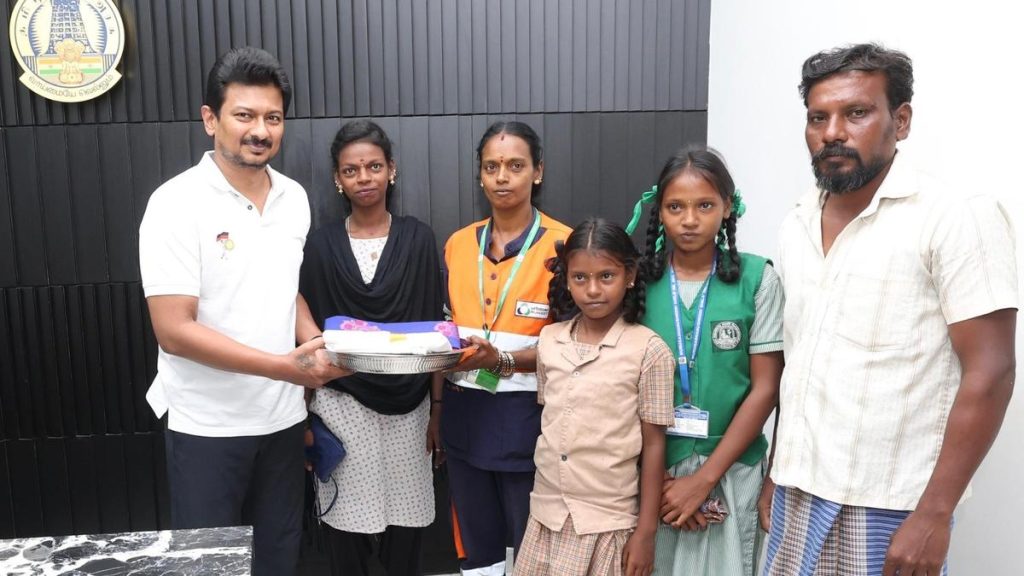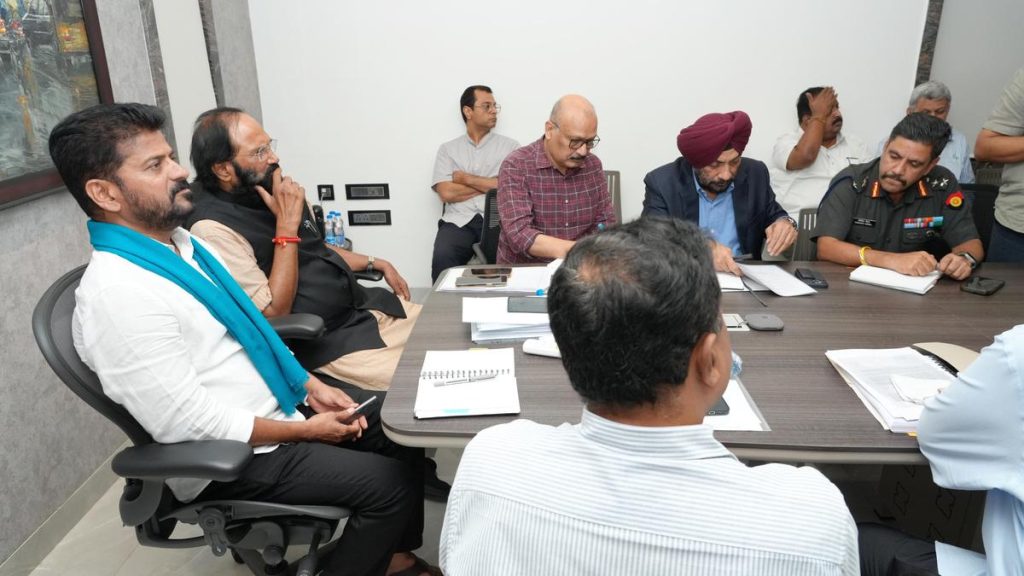Now Reading: Telangana Seeks ₹5,018 Crore Central Aid for Flood Relief Efforts
-
01
Telangana Seeks ₹5,018 Crore Central Aid for Flood Relief Efforts
Telangana Seeks ₹5,018 Crore Central Aid for Flood Relief Efforts

Fast Summary
- The Telangana Government has sought ₹5,018 crore from the Central government for urgent relief and rehabilitation due to recent heavy rains in the state.
- Initial estimates indicate significant losses to infrastructure:
– Municipal Management: ₹1,026 crore
– Roads and Buildings: ₹785.59 crore
– Irrigation: ₹655.70 crore
– Panchayat Raj & Rural Development: ₹377.43 crore
– Crop loss: ₹236 crore
- Immediate requirements include ₹1,500 crore for emergency repairs and an additional ₹300 crore for other damages.
- A delegation led by Deputy Chief Minister Mallu Bhatti Vikramarka submitted a memorandum to Union Home Minister Amit Shah requesting the rains be declared a national calamity.
- Damages reported include severe disruptions to roads, railway tracks, electric poles, and other public infrastructures; preliminary estimates suggest at least 22 lives were lost.
- Relief efforts involved seven NDRF teams, fifteen SDRF teams, and around 100 Army personnel; field-level monitoring reportedly minimized further casualties.
- Telangana’s cumulative losses (including last year’s floods) are estimated at over ₹16,732 crore; previous requests for Center assistance (₹11,713 crores) remain unaddressed.
- Amit Shah assured that a Central team would soon visit Telangana to assess damages.
Indian Opinion Analysis
The Telangana Government’s plea underscores the vulnerability of states facing increasingly frequent extreme weather events. With initial damage estimates exceeding several thousand crores across key infrastructure sectors such as transport networks and irrigation systems-and compounded by unresolved claims from past disasters-ensuring timely financial intervention is critical to mitigating long-term socio-economic impacts.
The state’s request signals urgency not only in repairs but also in disaster preparedness funding mechanisms. As climate-related exigencies become more common nationwide, coordination between state governments and the Centre assumes paramount importance. Union Home Minister Amit Shah’s assurance of prompt action is encouraging but must translate into expedient measures addressing both short-term needs like immediate relief funds and long-term resilience initiatives.
Read More: [Source Link]
























